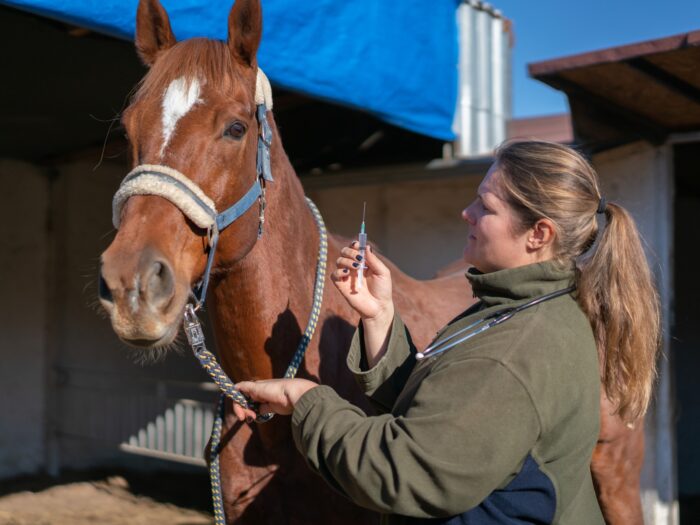Court Rejects $5M Claim for Racehorse Death, Rules Vitamin Injection Was ‘Medication’

A federal appeals court affirmed an insurer’s denial of a $5 million mortality claim for a valuable racehorse, providing a significant clarification on the interpretation of medication-related policy exclusions.
In Cypress Creek Equine, LLC v. North American Specialty Insurance Co., the 6th U.S. Circuit Court of Appeals ruled that an intravenous vitamin cocktail administered to the stallion Laoban constituted “drugs or medication” under the policy’s Unauthorized Medication Exclusion. The decision underscores the importance of clear policy language and reinforces that the ordinary meaning of terms will prevail in coverage disputes, even in high-stakes equine insurance cases.
The case arose from the death of Laoban, a successful thoroughbred stallion whose owners, including Cypress Creek Equine, held a $5 million livestock mortality policy with North American Specialty Insurance Co. (NAS).
After the horse began experiencing performance issues during the 2021 breeding season, a veterinarian administered an intravenous injection containing a mix of vitamins and an iron compound, colloquially known as “the black shot,” to improve his energy. Laoban suffered a fatal anaphylactic reaction minutes later. An investigation revealed that several components of the injection were expired, and one was administered intravenously despite a label warning for intramuscular use only.
When Cypress Creek filed a claim, NAS denied coverage, citing the policy’s Unauthorized Medication Exclusion. This clause voided coverage for any “loss caused by or resulting from . . . administration of drugs or medication to the horse,” unless certified by a veterinarian as preventative or necessary to treat an accident, sickness, or disease.
Cypress Creek sued, arguing the exclusion did not apply. The insured contended that the “black shot” was merely a vitamin and mineral supplement, not a “drug or medication” as intended by the policy. It further argued that the term was ambiguous and, under Kentucky law, should be interpreted in favor of the policyholder. NAS countered that the substances, administered by a veterinarian to treat a condition and affect the horse’s bodily function, fell squarely within the plain meaning of “drugs or medication.”
The 6th Circuit sided with the insurer, finding no ambiguity in the policy language. The court’s analysis focused on the ordinary, dictionary-defined meaning of the contested terms. It determined that the injection qualified as a “drug” because it was a substance “intended to affect the structure or function of the body.”
Furthermore, the court reasoned that the combination of ingredients administered by a veterinarian to treat Laoban’s perceived low energy made it a “medication.” The court dismissed the insured’s attempt to equate the injection with a dietary change, stating, “there is clearly no comparing a cocktail of expired vitamin solutions administered by intravenous injection with a new type of hay.”
Ultimately, the court affirmed the lower court’s summary judgment in favor of North American Specialty Insurance, rejecting the multimillion-dollar claim.
View the full decision here. &










